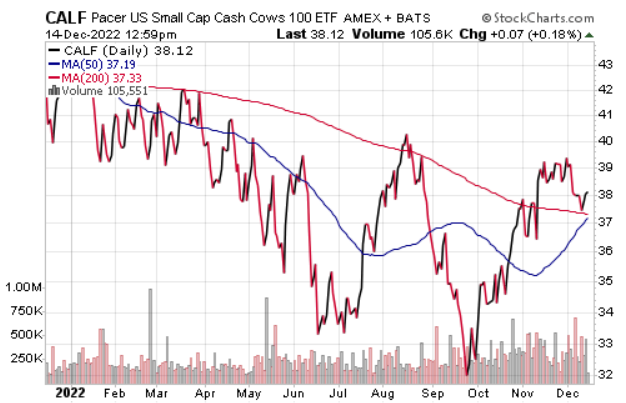The Curve of the Earth
Tell me does the world revolve the same?
Tell me do the people all take care of you?
Did you doubt the curve of the earth?
And every word, every word…
— Matt Nathanson, “Curve of the Earth”
Sublime moments. They may seem infrequent and evanescent, and many of the moments we categorize as “peak experiences” are, by their very nature, uncommon.
Yet it is my opinion that these sublime experiences don’t have to be as infrequent and uncommon as most people perceive them to be. I say that because all too often, we overlook, take for granted, or otherwise fail to really notice what’s happening all around us.
You see, the world of daily peak experiences, wonderment and awe of the sort that many of us experience only on rare occasions is open to us, if we know how to pay attention to each moment.
For example, yesterday I returned to my home in Southern California after a successful and extremely fun business trip to Washington, D.C. During my flight, I looked out the window and essentially witnessed the curve of the earth.

The curve of the earth as viewed from my window seat.
Now, I suspect you have been on a commercial airliner and looked out the window. But when you did, did you really pause and notice that sublime curve?
Did you drink in the wider notion that you were thousands of feet in the air, hurtling through the atmosphere at hundreds of miles per hour? I noticed this yesterday, and I did so with a glass of wine in my hand, and while also ironically listening to the song “Curve of the Earth” by the great Matt Nathanson.
The serendipity of this confluence of circumstances was not lost to me. In fact, I had to pause and make sure I really noticed everything about this moment. The feeling of wonderment at the technological achievements of the human mind that allowed me to fly across the country in about five hours while listening to music recorded, digitally reproduced and then pumped into my aural canal from little white pods wirelessly broadcasting the sound directly into my brain.
Yes, these things happen to millions of people every day, but most people don’t really notice how truly sublime an achievement it is.
Instead, many people lament the fact that things aren’t even better, or more convenient, or less expensive than they are.
Hey, I understand this. We all get used to modern life and the convenience of our wonderous world, and we all often take for granted that the luxuries produced by capitalism are here, on demand, for us to enjoy. And when things don’t go as planned, or when there is a glitch in our desire fulfillment chain, people take the opposite tack of noticing peak experience and focus on the distressed experience.
But in my opinion, this a huge mistake.
Now, I am not saying we should accept things that are broken, damaged or that don’t work. And if there is a problem to be solved, a need to be fulfilled or a fix that needs implementing, we should do it.
Yet in a world surrounded by brilliant achievement, wonderous technology and tremendous bounty — I think each day demands a bit more sublime notice.
So, right now, pause and notice the sublime nature of the wonderous things in your life.
Look around the room, look at the computer, tablet or phone you are reading this on, and let that sense of awe at the achievement wash over you as if you were seeing the curve of the earth for the first time.
Then I want you to reach for the tissue to blot your eyes, because when you stop to truly notice these things, the swelling of your spirit might just evoke a few teardrops of wonderment.
***************************************************************
ETF Talk: Cashing In on Small Caps
Small-cap stocks are not to be overlooked, especially when they are packed into an exchange-traded fund (ETF) that works differently than others.
This particular ETF is Pacer US Small Cap Cash Cows 100 ETF (CALF). CALF gives investors access to the U.S. small-cap arena, but its methodology is a bit different than other funds, since it focuses on free cash flow and how to use it to maximize returns.
Using the S&P Small Cap 600 Index, the ETF screens out financial companies, except for real estate investment trusts (REITs). The rest of the holdings are mostly consumer cyclicals.
After that first filtering process, CALF then ranks the remaining companies by their trailing 12-month free-cash-flow yield, takes the top 100 companies from that pool and weights them by their trailing free cash flow yield. The weighting for each of the companies within the ETF is capped at 2%.
CALF’s free-cash-flow strategy aims to provide long-term capital appreciation. Using free-cash-flow yield to measure the sustainability of a company may produce potentially higher returns and more appealing upside/downside capture over time.
As you can see from the chart below, CALF has seen quite a bit of activity throughout the year. However, for each dip it has seen, it’s seen an equal or higher spike. The ETF plummeted in mid-September but within three months rebounded and is continuing to climb.
CALF has $1.41 billion in net assets and a 3.12% distribution yield. It is currently sitting comfortably near the high end of its 52-week range.

The fund’s top 10 holdings include Atlas Air Worldwide Holdings Inc. (AAWW), 3.07%; Sonic Automotive Inc. Class A (SAH), 2.51%; Academy Sports and Outdoors Inc. Ordinary Shares (ASO), 2.36%; Abercrombie & Fitch Co. Class A (ANF), 2.19%; Signet Jewelers Ltd. (SIG), 2.13%; Meredith Corp. (MDP), 2.11%; AMC Networks Inc. A (AMCX), 2.09%; Vir Biotechnology Inc. (VIR), 2.07%; Select Medical Holdings Corp. (SEM), 2.06%; and Mueller Industries Inc. (MLI), 2.04%.
CALF is a unique ETF with a focus on small-cap stocks that generate high free cash flow. Further, the fund offers investors exposure to opportunities in the market where high-quality stocks are trading at a discount.
While CALF does provide an investor with a way to invest in small-cap stocks, using a unique strategy, this kind of ETF may not be appropriate for all portfolios. Thus, interested investors always should conduct their due diligence and decide whether the fund is suitable for their investing goals.
As always, I am happy to answer any of your questions about ETFs, so do not hesitate to send me an email. You just may see your question answered in a future ETF Talk.
*****************************************************************
In case you missed it…
Goodnight, Songbird
“And I wish you all the love in the world, but most of all, I wish it from myself.”
That is the hauntingly beautiful lyric that, for me, punctuates one of the most profound and moving ballads in rock history, Fleetwood Mac’s “Songbird.”
Amazingly, the entire song was written in less than half an hour by the band’s consummate keyboardist and vocalist, Christine McVie. Last week, on Nov. 30, the singer and songwriter died following what her family said was a “short illness.” She was 79.
When I heard of McVie’s death, I was unexpectedly and intensely saddened. I mean, in recent years I hadn’t really thought too much about Fleetwood Mac, or McVie, although I came of age as a young man listening to the iconic 1977 “Rumours” album, which still is one of the best-selling and most-beloved recordings of all time. In fact, in 2018, “Rumours” was selected for preservation in the National Recording Registry, being deemed “culturally, historically, or artistically significant” by the Library of Congress.
Yet for me the sense of sadness had nothing to do with cultural significance, but rather, from a sense of loss that yet another voice that moved and shaped my world is now gone. It’s a similar sense of loss that I felt nearly three years ago, when I learned of the death of RUSH drummer and lyricist Neil Peart.
Now, unlike Peart, I never had the chance to meet Christine McVie. In fact, I’ve never been to a Fleetwood Mac concert. My only real experience with the band is through their art, and my only connection with McVie is through her emotionally layered vocals, her affectionate, thoughtful, and direct lyrical messages on love, loss and relationships, and through her impeccable sense of melody.

Christine McVie doing what she did best, connecting with the world via song.
All of those brilliant songwriting characteristics are on full display in “Songbird,” and despite having listened to this track for some four-and-a-half decades, it still moves my soul each time I hear it with its captivating piano progression (written in the key of F for all of my fellow musicians) and heartfelt message that “the songbirds keep singing like they know the score, and I love you, I love you, I love you, like never before.”
For more detail on the musical side of what makes “Songbird” and McVie’s work so great, check out this analysis from producer, musician and educator Rick Beato.
As I processed the news of McVie’s death, I felt the bittersweet taste that news like this leaves on one’s mental palate. The bitterness is that all of us will cease to be, and everyone that matters to us will one day be gone.
The sweetness is that the memories of those past, and what they did while they were here, cannot be taken from us. This is especially true in the case of McVie because we have a direct link to her spirit virtually any time we want it, and that is through her recorded music.
Finally, McVie’s death served as a reminder to me that what matters most in this world is to do something beautiful with our limited time.
That beauty can take many forms. It can come from our efforts at productive achievement, from our interactions with others or from our efforts to make the world just a little bit better than it is right now.
Today, I dedicated last week’s issue of The Deep Woods to what matters most in this world… doing something beautiful.
And for being one of so many illustrious examples of how one does just that, I want to thank Christine McVie in the best way I know how to create beauty in the world, and that is through my writing.
Goodnight, Songbird. I love you like never before.
*****************************************************************
A More Pleasant Misery
“Money can’t buy you happiness but it does bring you a more pleasant form of misery.”
— Spike Milligan
While it’s true that nothing, not even money, can buy one happiness, it’s also true that the more money you have, the less worry you have about winning the struggle for survival. So, spend, save and invest your money wisely. At the very least, that will afford you a more pleasant form of misery.
Wisdom about money, investing and life can be found anywhere. If you have a good quote that you’d like me to share with your fellow readers, send it to me, along with any comments, questions and suggestions you have about my newsletters, seminars or anything else. Click here to ask Jim.


